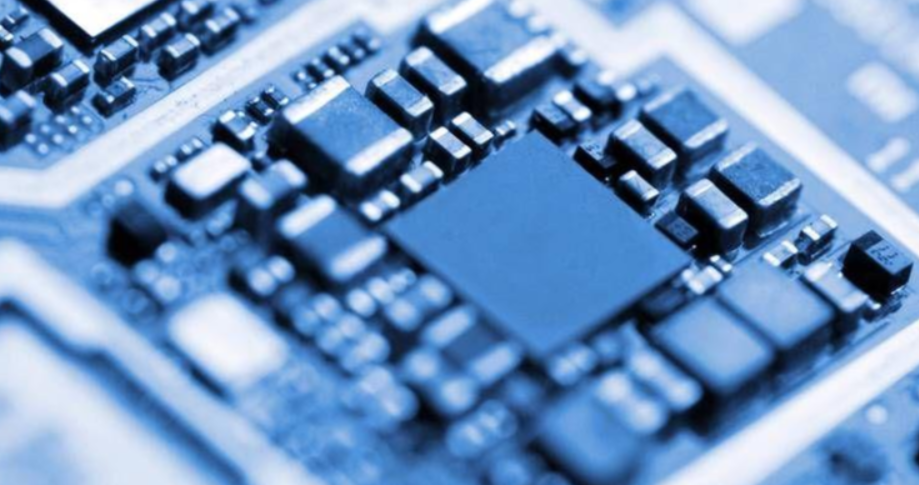The U.S. Bans AI Chip Sales?
Advertisements
The global landscape of technology is rapidly evolving, with nations racing to secure their positions in the field of artificial intelligence (AI). The United States, aiming to curb China's advancements in AI, has implemented stringent restrictions on the export of advanced AI chips. Notably, chips like the H100 and A100 have been banned from being sold to China, leading NVIDIA to modify its offerings. In response, NVIDIA introduced the H800 and A800 chips, which were also subjected to export limitations. Ultimately, the company had to unveil the H20 chip, which has been dramatically downgraded in performance — achieving just 20% of the capabilities originally present in the H100. This not only highlights the aggressive measures taken by the U.S. but also raises questions about the future technological landscape.
From a technical standpoint, the H100 chip, rooted in NVIDIA’s Hopper architecture, boasts exceptional computational power and advanced capabilities, making it ideally suited for large-scale data processing and complex model training. These features are crucial in the competitive AI landscape, where efficiency and performance can determine success. However, the H20 chip, while still a product of NVIDIA, has seen significant reductions in key performance metrics such as memory bandwidth and computational core efficiency due to these restrictions. Despite the downgrade, NVIDIA’s long-standing development of the CUDA ecosystem continues to provide a robust foundation, allowing developers to use an extensive array of tools and libraries that simplify AI development on NVIDIA GPUs. Consequently, many Chinese companies, facing limited options, have no choice but to procure the less potent H20 chips, revealing a precarious situation in the AI chipset market.
The market response to the H20 has been strangely robust despite its limitations. Data from various sources indicate that sales of the H20 have surged since its introduction in the third quarter of 2023, with quarterly growth exceeding 50%. This indicates a continued demand for NVIDIA products despite the performance constraints, allowing the company to reap significant financial gains amounting to billions of dollars. This scenario underscores NVIDIA’s dominance in the AI chip market, presenting a complex dynamic for Chinese AI companies who find themselves in a position of reliance on constrained resources.
However, a significant development in this competitive landscape has emerged with the introduction of Deepseek. Unlike NVIDIA's offerings, Deepseek does not depend on advanced AI chips or the proprietary CUDA framework. Instead, its open-source nature has attracted numerous domestic AI firms eager to adopt Deepseek technology. This a landmark shift empowers these companies by removing dependencies on NVIDIA's chips and ecosystem, enabling them to innovate without encumberment from external constraints. The technological breakthrough represents a fresh opportunity for Chinese AI enterprises, creating a means to challenge NVIDIA's market dominance in AI chips and associated development environments.

As enthusiasm around Deepseek grows, it has ignited a newfound interest among Chinese firms in developing AI Application-Specific Integrated Circuits (ASICs). Companies are now looking to Samsung, renowned for its competitive pricing and production capacity, to produce these specialized chips using advanced 4nm processes. Unlike general-purpose GPUs, ASICs are tailored for specific applications, making them incredibly efficient for tasks such as AI inference and cloud computing. In the past, the reliance on NVIDIA and CUDA limited the scope of ASIC applications in the field of artificial intelligence. However, the rise of Deepseek has opened new avenues for the deployment of ASICs in AI, presenting substantial market opportunities for Chinese manufacturers.
Despite these promising developments, uncertainty remains a constant feature of the narrative. The U.S. has previously demonstrated its resolve to impede China's progress through a series of bans on AI chips. It is plausible that forthcoming restrictions may extend to Samsung’s manufacturing capabilities for Chinese technological firms, reflecting the U.S.’s broader strategy to maintain its technological supremacy. By limiting technological exports and collaboration within supply chains, the U.S. aims to restrict competitors, further complicating the operational landscape for China's AI chip industry.
Looking ahead, overcoming external restrictions will hinge on China's breakthroughs in chip manufacturing technology. Achieving independence in producing cutting-edge chips, such as those based on 4nm or even 3nm processes, would render U.S. imposed sanctions ineffective. Currently, China is ramping up research and development investments within the semiconductor sector, making notable strides in key equipment technologies such as photolithography and etching. Despite still trailing behind international standards, initiatives to cultivate talent within the semiconductor industry are also underway, focusing on enhancing educational programs in relevant disciplines to foster expertise in chip manufacturing.
The Chinese government has recognized the urgency of this challenge and has introduced a series of policies designed to bolster the chip industry. These range from tax incentives to direct financial support, all aimed at fostering an innovative environment conducive to the growth of domestic firms. The proactive measures taken by stakeholders within the Chinese semiconductor sphere indicate a resolve to confront obstacles head-on, aim at achieving technological breakthroughs in chips, and carve a path towards a self-sufficient future. With these concerted efforts, the prospects for China’s chip industry are optimistic, heralding new possibilities for innovation and independence in the AI landscape.
Leave A Reply